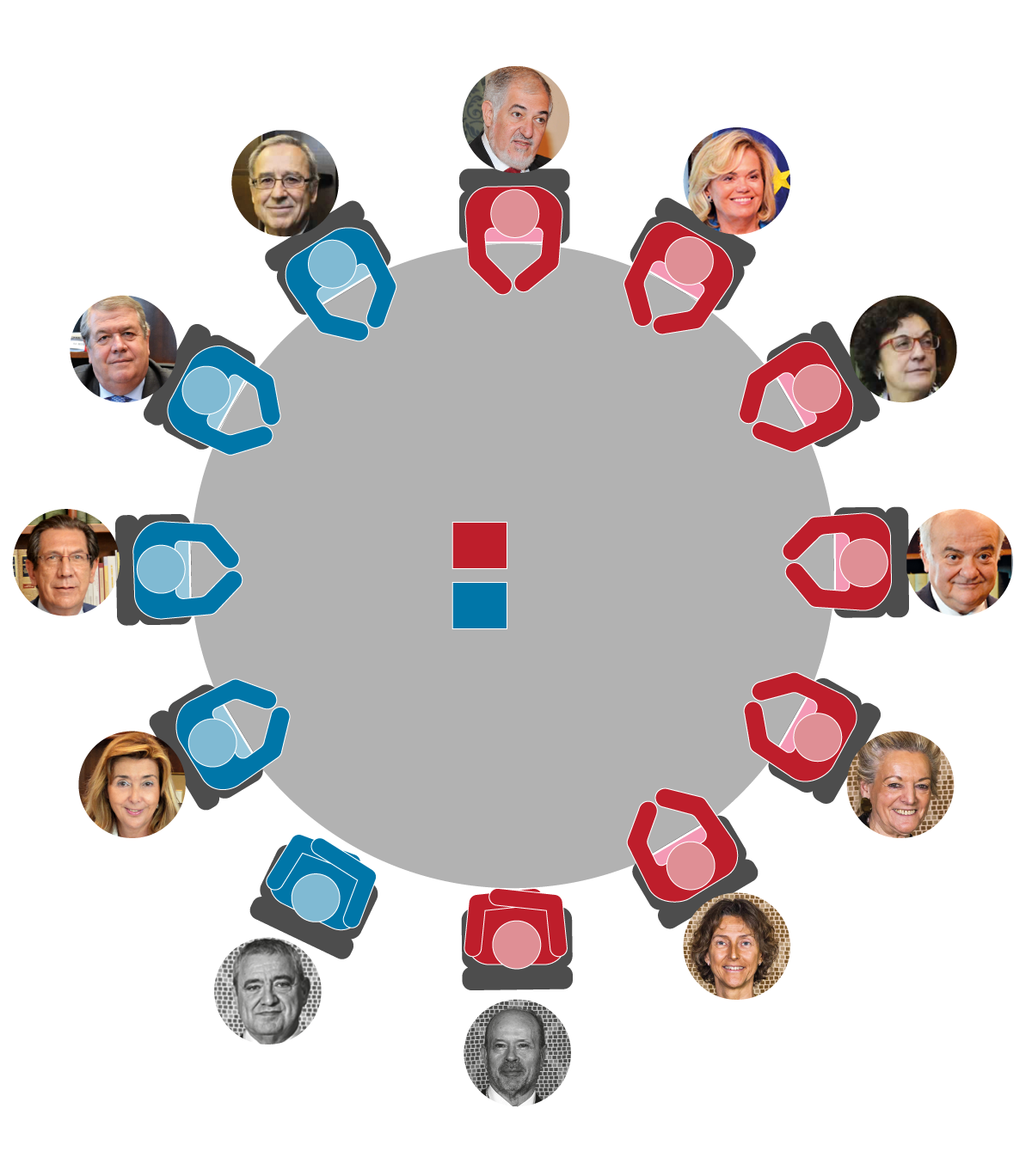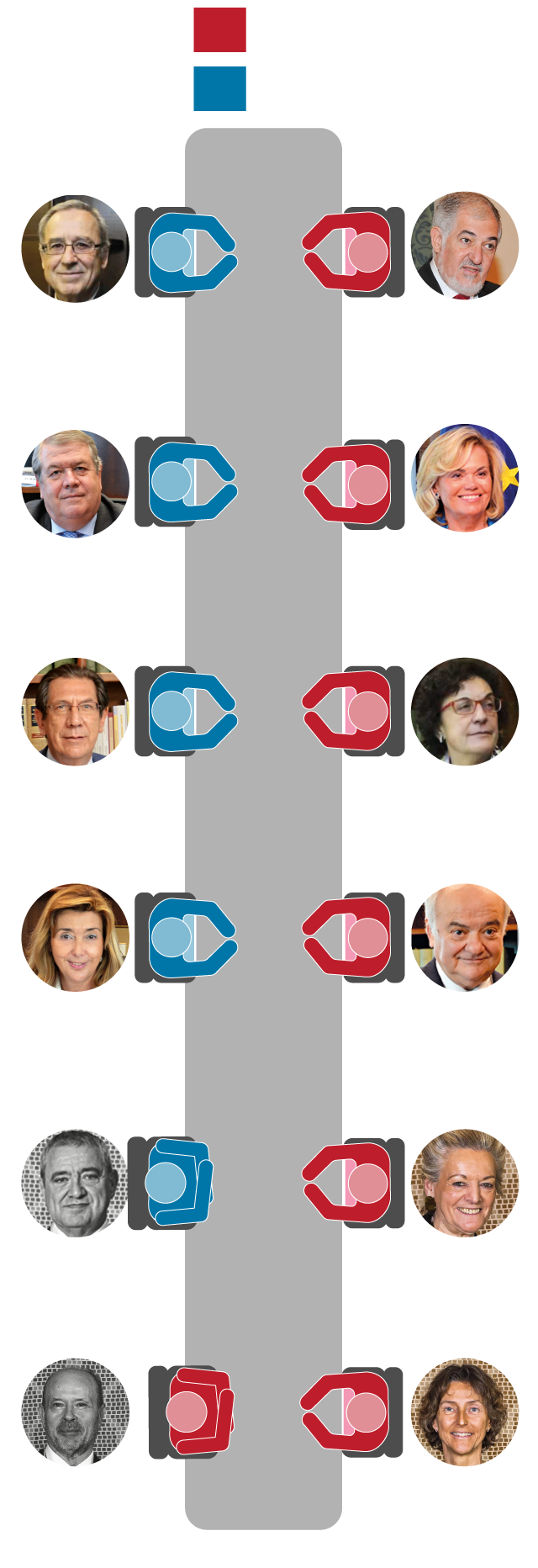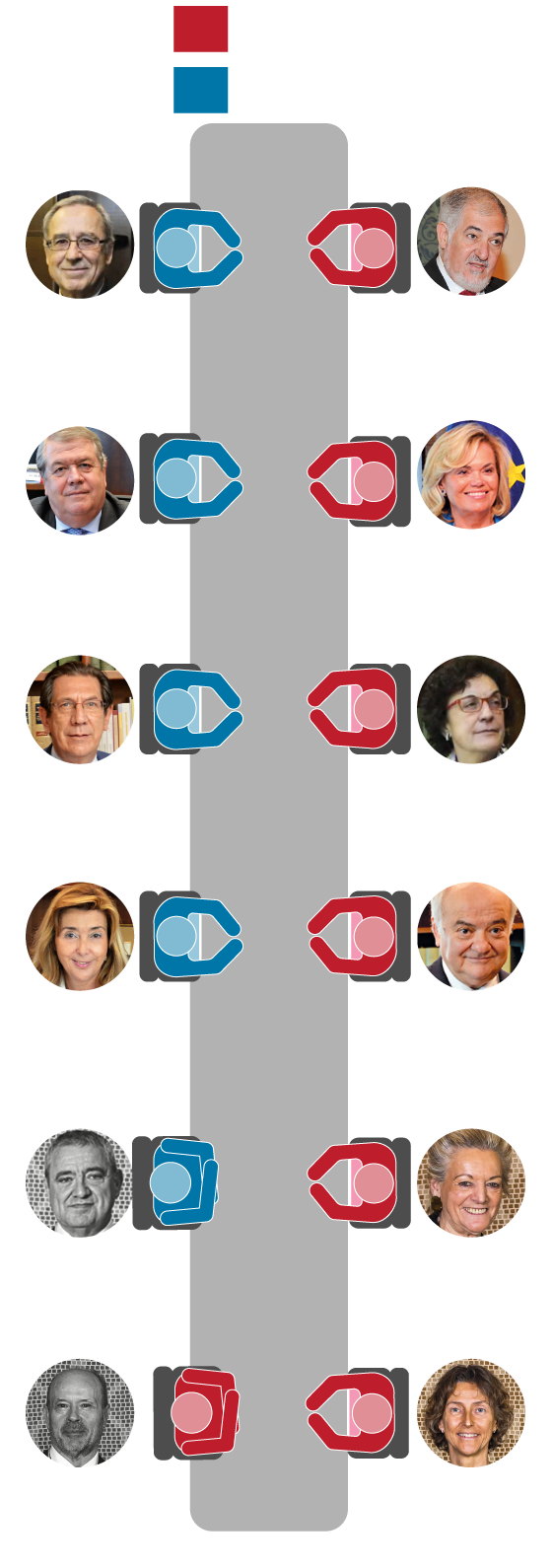'No' to going to Europe: Constitutional Court majority passes first debate on amnesty law
After three hours of deliberation, which will continue tomorrow, a "majority" of judges have opposed going to Luxembourg.


MadridThe Constitutional Court has launched a key week with the debate on whether or not the amnesty fits into the Constitution. This Monday, after three hours of deliberation, a majority of the court decided to oppose appealing to the Court of Justice of the European Union with a preliminary ruling, which is one of the issues raised by the conservative faction, according to sources at the high court. Thus, the progressive majority of the Constitutional Court, although there was no vote, has overcome the first block of debate on the law after all members of the high court had spoken. The decision not to appeal to Europe is significant, because it would have delayed the entire debate.
This Tuesday, therefore, as planned, the debate will continue starting at ten o'clock tomorrow morning, and a ruling is expected on Thursday or Friday on the appeal of unconstitutionality that the People's Party (PP) filed against the judicial forgetting law. In any case, the discussion in the Constitutional Court has not had the prominence that was expected a few weeks ago: most of the media attention has been focused on the Constitutional Court's ruling. were placed in the statement of former minister José Luis Ábalos and Koldo García in the Supreme Court, which affect the PSOE and tighten the judicial circle against the Spanish president, Pedro Sánchez.
Who's Who
On the table, the judges have the report – the draft of the sentence – prepared by the vice president of the court, the progressive Inmaculada Montalbán, who supports the pardon but does not comment on the embezzlement, key to the future of former President Carles Puigdemont, as this was not part of the appeal filed by the Popular Party (PP). Montalbán's brief greenlights the bulk of the law and dismantles the vast majority of the arguments the PP raised against it in its appeal. "The legislature can do anything that the Constitution does not explicitly or implicitly prohibit," the report states, which only considers three minor grounds of unconstitutionality.
Up to ten judges are participating in the debate, as two of them have been removed from the amnesty deliberations: one is former Minister of Justice Juan Carlos Campo, who requested it at his own request because, as a member of the Spanish government, he spoke out against the amnesty during the pardon process; and the other, José María Macías, who, when he was a member of the CGPJ (General Council of the Judiciary), promoted a harsh text against the amnesty law, together with the sector aligned with the conservatives. Vox asserted this Monday that the "decent judges" of the Constitutional Court "should not participate" in the amnesty plenary session so as "to avoid creating a sense of normalcy." This advice, not even the conservatives heeded: all members of the Constitutional Court discussed the matter for over three hours.
The progressive judges
On the progressive side is the president of the TC himself, Cándido Conde Pumpido, who arrived at the high court in 2017. Attorney General of the State in the time of José Luis Rodríguez Zapatero, maintains an eternal rivalry with Manuel Marchena, who presided over the Supreme Court's criminal division during the Proceso trial. Now he may be the one in charge of putting that resolution on paper if, as it seems, the plenary session endorses the amnesty. However, at the time, Count Pumpido was highly critical of the independence movement, so much so that he withdrew—after being recused—from the Constitutional Court's deliberations on the 1-O ruling, having publicly stated that these were "criminal" actions and that the referendum should be used as a "just another story" instrument. Now, the right has presented Count Pumpido as a transmission belt for the Moncloa.
Within the progressive group, there is another important name: Inmaculada Montalbán, the rapporteur of the draft ruling being submitted for debate. Considered close to Minister Margarita Robles from her time at the CGPJ and a specialist in issues of gender-based violence, she could become the next president next year when Conde-Pumpido's term ends. She has already played a controversial role previously: when she dismantled the Supreme Court's ERE ruling that affected the Andalusian PSOE.
Along the same progressive lines is Ramón Sáez Valcárcel, who, considered even to the left of the PSOE, drafted the National Court ruling that acquitted the Mossos d'Esquadra leadership; as well as María Luisa Balaguer, who was one of the judges who broke the unanimity in the TC in relation to the 1-O trial. Furthermore, in the progressive sensitivity that must support the amnesty, there is Laura Díez, a Catalan from the Council of Statutory Guarantees who was appointed at the proposal of the Spanish government, and María Luisa Segoviano, who was the first woman to preside a Supreme Court chamber and whose statements generated controversy: he said that the right to self-determination should be studied.
The conservative judges
With José María Macías out of the game, only four conservative judges remain: Concepción Espejel, Enrique Arnaldo, César Tolosa, and Ricardo Enríquez. The first three are those who in recent weeks have led the offensive to halt the amnesty deliberations, to the point that they were the ones who demanded that the president of the Constitutional Court, Cándido Conde Pumpido, not issue a ruling until the European Court of Justice had ruled on the law—there is already a file open for petitions there.
Espejel, in contrast to Sáez Valcárcel, was the judge in the National Court who opposed the acquittal of the Mossos d'Esquadra leadership led by Josep Lluís Trapero. Arnaldo's background also includes his close ties to the now-departed former State Attorney General José Manuel Maza, who filed the complaint regarding the Trial, and also to Manuel Marchena. His election was also controversial because he was indicted in the Palma Arena case—ultimately, he did not go to trial—and also because, while a lawyer in Congress, he combined private consulting with the PP government in the Balearic Islands. For all these reasons, the pro-independence parties appearing before the Constitutional Court over the amnesty law attempted to remove him, something the plenary session rejected. Nor was Espejel's recusal upheld.
As for César Tolosa, he was one of the latest Conservative additions, following the PP-PSOE pact for the renewal of the CGPJ (General Council of the Judiciary), coming from the Supreme Court, as was Enríquez, who also comes from the same court.
They all meet this week to make a key pronouncement for the Spanish legislature.



